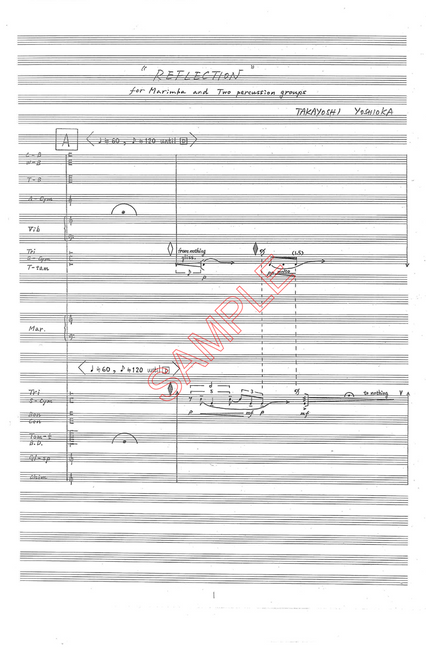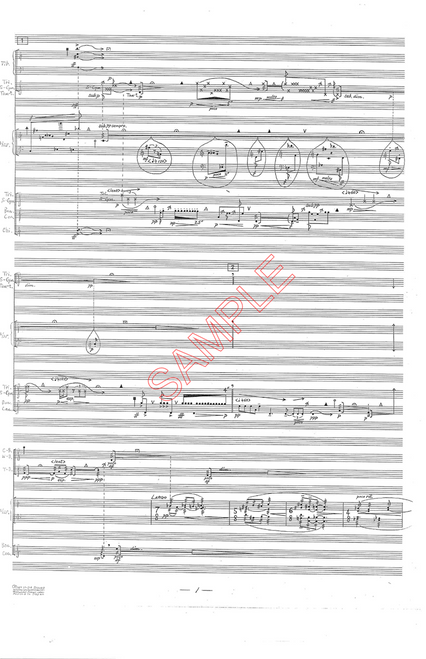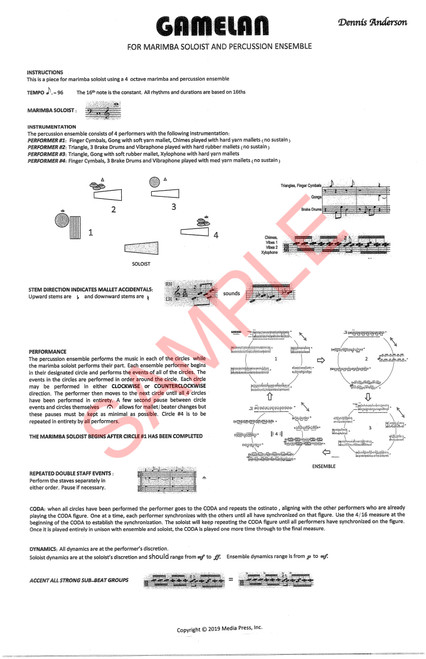Includes score. (Three scores needed for performance)
Print size: 11 x 17"
Review from Percussive Notes:
Reflection
Takayoshi Yoshioka
Written in 1981 in Tokyo, “Reflection” is an intense composition for solo marimba and two additional percussionists. Takayoshi Yoshioka has been an active performer and composer for many years, writing solos, concerti, and ensemble works for marimba and percussion. At the time, Yoshioka had been very active winning both the PAS Composition Competition in 1980 with a vibraphone work, “Meditation,” and the Cincinnati Conservatory of Music International Competition in 1979 with his work “Paradox III.”
Japanese marimba influences are prevalent throughout the composition. Yoshioka was a student of both Keiko Abe and Akira Miyoshi, and the former explains Takayoshi’s extreme technical demands in the work, and the latter explains the complex, exciting harmonic and rhythmic language of many Japanese compositions. Imagine “Mirage pour Marimba” by Yasuo Sueyoshi or “Torse III” by Miyoshi with two additional percussionists layering a dense and powerful soundscape around the soloist. Using a variety of detailed rubato notational techniques—all explained in the score—Yoshioka creates rhythmic liberties throughout while also finding ways to connect all three players into one homogeneous group.
“Reflection” is very complex and creative, requiring a keen awareness for the soloist and the other players at all times. Yoshioka includes elements of indeterminacy by allowing the soloist to choose from certain cells within the work, providing for a different performance for each soloist. Some of the many technical demands include lightning-fast runs up and down the keyboard, huge shifts from the low register to high, and multiple isolated figures that pop out of sustained rolls underneath. The marimbist needs tremendous technical and musical skills to pull off this solo, and the additional percussionists require similar ability levels with their own setups to successfully perform this work.
—Matthew Geiger, 2020
Demo:







